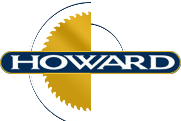In the arena of high-performance metals, 7050 aluminum stands out as a material of exceptional versatility and strength. Whether for aerospace applications or other precision machining requirements, this alloy has become an indispensable feature in various industrial applications. Below, we look into the intricacies of 7050 aluminum alloy, identifying its primary characteristics and examining its various applications.
Composition of 7050 Aluminum
7050 aluminum belongs to the 7xxx series of aluminum alloys and is well-known for its advantageous strength-to-weight ratio. The composition of 7050 aluminum includes zinc as its main alloying element in addition to other elements of smaller percentages. The development of 7050 aluminum was instigated by the need for a high-strength material having excellent resistance to corrosion, making it a key component in various critical applications.
Notable as a vital alloy for aerospace applications, 7050 aluminum alloy stands out as a heat-treatable product. Known for its outstanding stress corrosion cracking resistance, high mechanical strength, and toughness even at temperatures below zero, this alloy is proven to be essential in the aerospace industry. It is specifically tailored for heavy plate applications, including bulkheads, fuselage frames, wing skins, and various structures that comprise aircraft.
Often available in two tempers, T7451 and T7651, 7050 aluminum alloy possesses and electrical conductivity at 40% of copper, reinforcing its adaptability or applications in which conductivity is a key factor. When working with Aluminum 7050, it is important to approach the welding of this metal with appropriate caution, as the welding process may potentially reduce the inherent strength of the alloy.
For an alloy to qualify as 7050 aluminum, it must possess a particular chemical composition as follows: Aluminum at 89%, Zinc at 6.2%, Copper at 2.3%, Magnesium at 2.3%, and Zirconium at 0.12%. These precise proportions ensure that Aluminum 7050 provides the exceptional combination of durability, resistance, and strength required for aerospace industry applications.
Alloy 7050: The Preferred Choice Over 7075 in Aerospace Applications
When it comes to aerospace applications, Alloy 7050 aluminum plates are often the preferred choice, particularly in the 3 to 6 inch thickness range, outdoing the usage of 7075. This preference is attributable to the excellent strength retention offered by 7050 in thicker sections. At Howard Precision Metals, we stock 7050 T7451 aluminum plate (AMS 4050), which provides superior resistance to stress corrosion cracking (SCC) and exceptional exfoliation corrosion resistance, although at somewhat lower levels compared to 7050 T7651 (AMS 4342).
Notably, 7050 T7451 exceeds alloy 7075 in terms of stress corrosion cracking resistance, corrosion resistance, and toughness. A lower sensitivity to quenching, a characteristic not common in many aerospace alloys, gives 7050 the ability to maintain its strength properties exceptionally well in thicker sections. This alloy also exhibits reliable machinability throughout the thickness of heavier gauges, making it distinct from other high-strength aluminum metal counterparts. At Howard Precision Metals, we are your premier and trusted source for 7050 T7451 aluminum plate, providing aerospace solutions that focus on machining consistency, resilience, and strength.
Primary Characteristics of 7050 Aluminum
1. High Strength: The notable characteristic of 7050 aluminum alloy is its exceptional strength. In its T7451 temper, this alloy possesses tensile strength values that exceed many other aluminum alloys. The enhanced strength of this alloy is a result of its unique composition, making it the desirable option for applications that require loadbearing capacity and structural integrity.
2. Superior Corrosion Resistance: In addition to its considerable strength, 7050 aluminum also possesses outstanding corrosion resistance. This characteristic makes it ideally suitable for applications that involve challenging environments, including atmospheric conditions to which aerospace components are commonly exposed. The resilience of this alloy against corrosion ensures its reliability and longevity in demanding operational settings.
3. Machinability and Formability: Despite its high strength, 7050 aluminum alloy maintains reliable machinability. This feature is vital for aerospace and automotive industry applications that require precision machining. The formability of this alloy enhances its versatility, enabling its manufacturers to produce intricate components with ease.
Applications Beyond Aerospace: Exploring the Versatility of 7050 Aluminum
1. Defense Industry: Beyond the aerospace industry, 7050 aluminum also finds application in the defense sector. The high strength properties of this alloy make it ideal for the manufacturing of armored structures, military vehicles, and related equipment, where reliability and durability are extremely important.
2. Sports Equipment: The recreation and sports industry also benefit from the special properties of 7050 aluminum. This alloy is used in the manufacture and fabrication of high-performance sporting equipment such as bicycle frames, where the combination of its lightweight and strength characteristics is required to enable optimal performance.
Choosing Howard Precision Metals for Your 7050 Aluminum Needs
At Howard Precision Metals, we are your premier source for premium 7050 aluminum products. We offer an extensive inventory of aluminum alloy products that includes 7050 T7451 aluminum plate, ensuring you have access to the materials you need for your projects. With a dedication to precision and quality, we work hard to serve as your trusted partner in utilizing the full potential of 7050 aluminum.
Strengthen Your Projects with 7050 Aluminum Alloy
If you are ready to benefit from the versatility and strength of 7050 aluminum for your next project, call our team today at 866.602.3788 or request a quote on our website.


